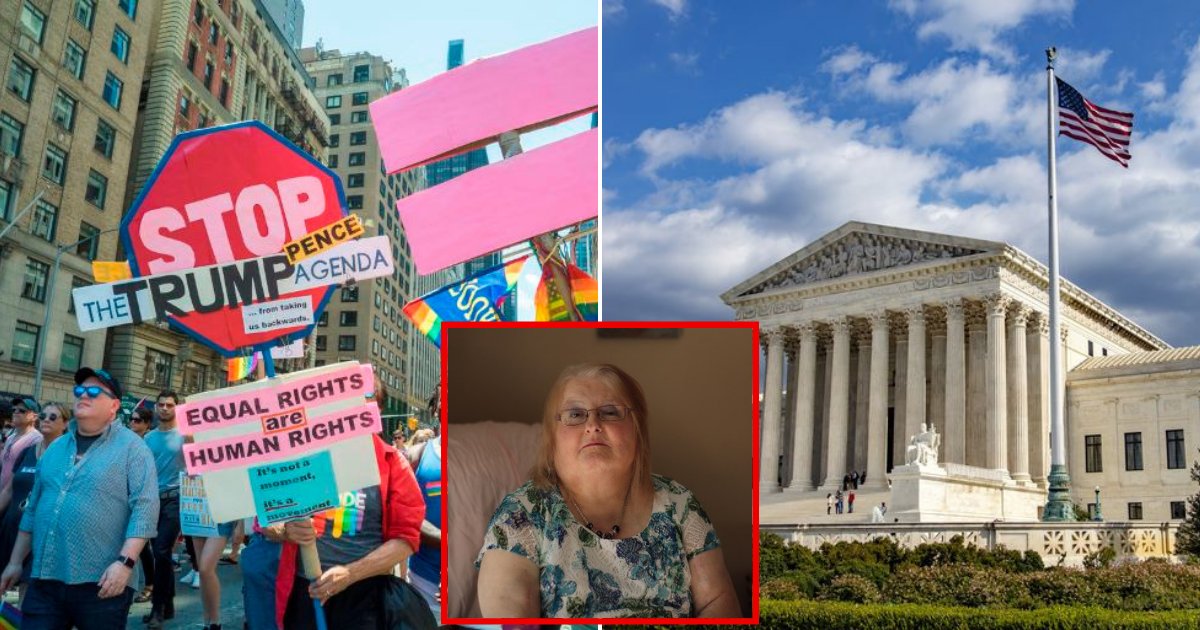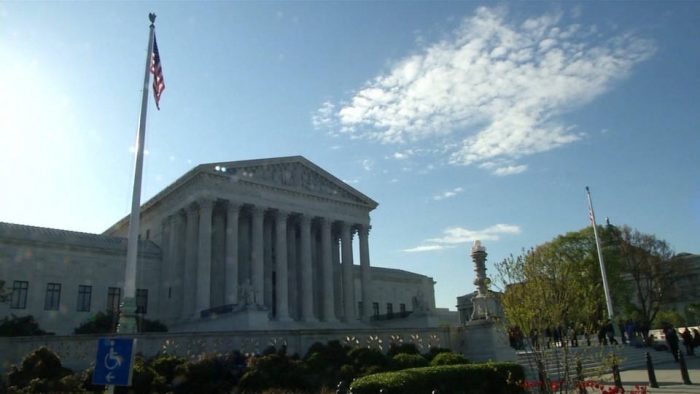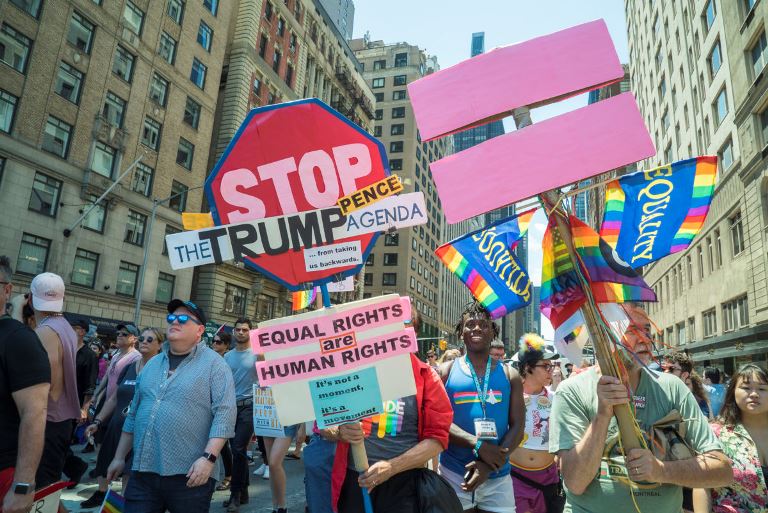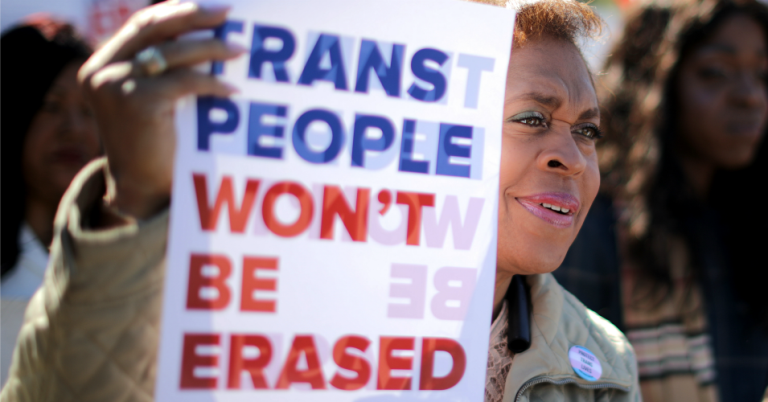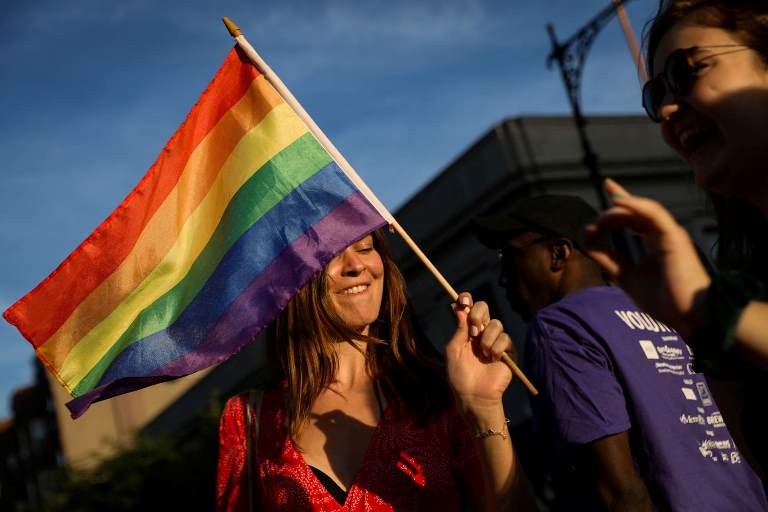The Trump administration asked the Supreme Court to legalize firing employees solely for being transgender, the Huffington Post reported.
The administration took one of its most aggressive steps to legalize anti-transgender discrimination, arguing a funeral home could fire a trans woman just because she desired to wear women’s clothes while working.
On Friday, the Justice Department argued that Title VII of the Civil Rights Act of 1964 protects workers from discrimination based on ‘biological sex.’
“Title VII does not prohibit discrimination against transgender persons based on their transgender status,” the Justice Department noted. “It simply does not speak to discrimination because of an individual’s gender identity or a disconnect between an individual’s gender identity and the individual’s sex.”
Earlier this year, the Supreme Court agreed to hear three cases that look at whether Title VII applies to LGBTQ workers.
Friday’s brief refers to one of the lawsuits, R.G. & G. R. Harris Funeral Homes Inc. v. Equal Employment Opportunity Commission, in which a transgender woman was sacked from the job after she changed.
Aimee Stephens was a man when she started working at the funeral home in Michigan in 2007. Thomas Rost, the company’s owner, fired her six years later when she transitioned.
The Court of Appeals for the 6th Circuit ruled that Stephens’ firing was discriminatory.
In a 49-page decision, the court wrote: “The unrefuted facts show that the Funeral Home fired Stephens because she refused to abide by her employer’s stereotypical conception of her sex.
“Discrimination against employees, either because of their failure to conform to sex stereotypes or their transgender and transitioning status, is illegal under Title VII,” the court said. “It is analytically impossible to fire an employee based on that employee’s status as a transgender person without being motivated, at least in part, by the employee’s sex.”
However, the Justice Department argued that ‘the ordinary public meaning of ‘sex’ was biological sex’ when the Civil Rights Act passed in 1964.
DOJ lawyers wrote: “It did not encompass transgender status, which Stephens and the Sixth Circuit describe as a disconnect between an individual’s biological sex and gender identity.
“In the particular context of Title VII — legislation originally designed to eliminate employment discrimination against racial and other minorities — it was especially clear that the prohibition on discrimination because of ‘sex’ referred to unequal treatment of men and women in the workplace.”
Chase Strangio, representing Stephens, argued that the case has implications beyond the LGB community.
“People don’t realize that the stakes are extending not just the trans and LGB communities, but every person who departs from sex stereotypes: Women who want to wear pants in the workplace, men who want more childbearing responsibilities. Those protections are also in peril with the arguments advanced by the Trump administration, presented at the Supreme Court,” Strangio told HuffPost.
“There isn’t a coherent way to carve out LGBT people without changing the standard that exists under the law.”
What’s your take on this? Let us know in the comments section and SHARE this with your friends and family! :)


